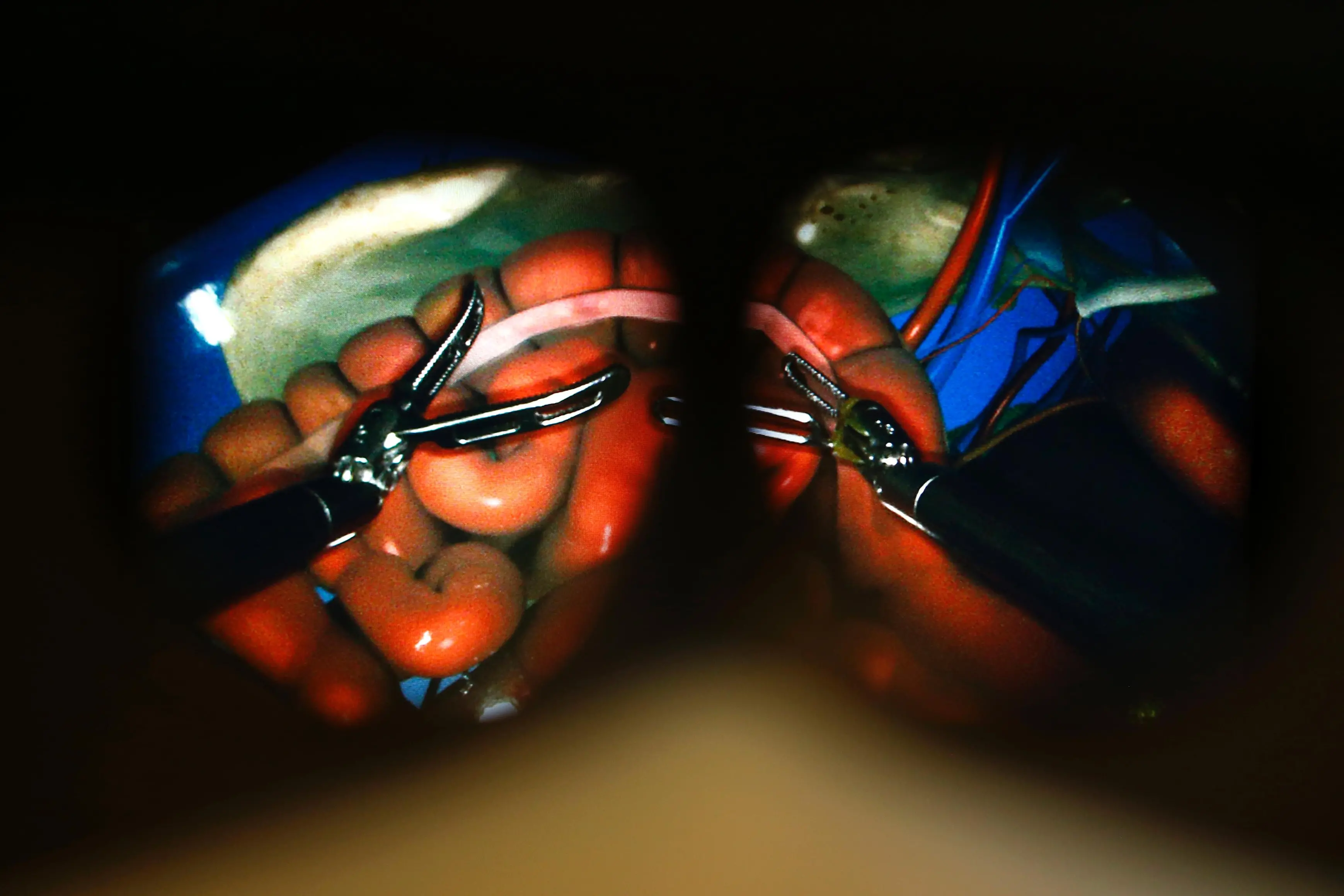PHOTO
By Andrew M. Seaman
(Reuters Health) - Letting robots perform surgery independently may ultimately improve outcomes for patients, researchers say.
In experiments on pigs, surgical stitches made by autonomous robots were as good as, or better than, stitches made by skilled surgeons. The same may be true in humans, according to the study's senior author.
"The main message is that by giving surgeons tools that are intelligent, whether autonomous or semi-autonomous, you can make outcomes better," said Dr. Peter Kim, of the Sheikh Zayed Institute for Pediatric Surgical Innovation at Children's National Health System in Washington, D.C.
Robotic surgery has become increasingly common in the U.S., but currently available robots still need to be operated by surgeons' hands. Autonomous robots would be more consistent than humans, Kim told Reuters Health.
"No matter how steady a surgeons hands are, there is always some tremor," he said.
Using autonomous robots in some of the 44.5 million soft-tissue surgeries in the U.S. each year might reduce human errors and improve efficiency, surgical time and access to quality surgeons, the researchers write in Science Translational Medicine.
To see if robots could successfully complete surgical tasks on their own, the researchers created the Smart Tissue Autonomous Robot (STAR), which consists of a robotic arm, suturing tool and imaging technologies.
The robot uses a computer program informed by best surgical practices to determine where and how to place a stitch.
First, the researchers tested STAR's ability to stitch together two pieces of tissue harvested from pigs. The autonomous robot generally outperformed human surgeons and currently-available robots.
Then the investigators compared the skills of STAR and human surgeons for reconnecting an interrupted intestine in live pigs. The outcomes of the operations by STAR were consistent with the outcomes of a skilled surgeon.
Autonomous robotic surgery still a long way to go before it's ready for prime time, however.
Dr. Keith Lillemoe, chief of surgery at Massachusetts General Hospital in Boston, said the technology needs to be tested in a variety of models.
"It's something that's clearly exciting, but we need to see more evidence," said Lillemoe, who was not involved in the new study.
Even if evidence shows technology to be just as good as traditional surgery, people will need to factor in the cost of autonomous surgery, he said.
Lillemoe is not worried about being replaced by a robot, because so many surgical decisions can't be computerized, he said.
"Surgery is no different than any other field," Lillemoe said. "Technology can always make us better."
SOURCE: bit.ly/1T9AxQ1 Science Translational Medicine, May 4, 2016.
© Reuters 2016





















